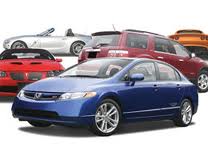CSE slams reported efforts by industry to dilute car fuel economy standards

· Standards already approved by PMO after public consultations· Any dilution will make a mockery of the decision-making process· Standards must be notified immediately to help curtail energy costs from cars and ensure energy security khyati gupta New Delhi, Centre for Science and Environment (CSE) has criticised a reported bid by the Indian car industry to reopen and dilute the proposed fuel economy standards. The standards have already been approved by the Prime Minister’s Office. The approved Corporate Average Fuel Consumption standards have laid down atarget of 18.15 km/litre (or 129.8 gm of CO2/km) in 2015 and 20.79 km/litre (or 113 gm of CO2/km) in 2020, after adjusting for increase in the average weight of the car fleet. However, according to sources, the car industry – which is said to be unhappy with these standards -- is trying to push the timeline of their implementation to 2018 and 2023. It is also making an effort to have the standards watered down. While the approved targets are aiming at 20 per cent CO2 reduction over 2010 levels in 2020, the car industry is proposing just 16 per cent reduction as late as 2023. The industry is also against adjusting the targets to account for the increase in average weight of the car fleet. It wants to keep lax margins for bigger cars. The average weight of the Indian car fleet is expected to increase in coming years. Bigger cars burn more fuel -- standards must account for this, says CSE. Says Anumita Roychowdhury, CSE’s executive director-research and advocacy and head of its air pollution team: “If these reported efforts by the industry are true, then they violate the sanctity of the decision-making process and make a mockery of the system. The approved proposal has been finalized after due diligence, inter-departmental deliberations, public consultations and the Prime Minister’s approval. This cannot be compromised and reopened through backdoor negotiations unilaterally.” India will lose face in climate talksIndia will lose face in the ongoing climate talks if its targets slide behind other major vehicle producing countries by 2020. Says Roychowdhury: “India must not, by an act of public policy, aim to finish as the worst in the world despite starting from one of the best baselines in 2010 — 141 gm of CO2/km. The European CO2 standard for cars for 2012 is 140 gm CO2/km. But Europe will leapfrog to 95 gm/km in 2020.” Even the US, the climate renegade, will bring down its levels from 187 gm/km in 2010 to 121 gm/km in 2020. How can the Indian car industry aim for worse targets for passenger cars, asks CSE. Undermining energy securityThe approved standards will enable fuel savings of close to 103 million tonnes of oil equivalent. Any dilution will significantly reduce these savings. With the explosive increase in car numbers and gradual increase in average weight of the new car fleet, the energy penalty will be enormous. This has serious implications given India’s dependence on imported crude oil and vulnerability of India’s economy to oil price vagaries. According to the International Energy Agency, future energy demand in India’s transport sector will be largely driven by cars, after the heavy duty segment. It is not fair to incur enormous energy costs and suffer climate risk from the use of personal vehicles. Dieselisation to bring more big cars and SUVsThe Petroleum Planning and Analysis Cell of the Union ministry of petroleum and natural gas has, in its Sales Review Report September 2012, said that there has been a 48.4 per cent growth in utility vehicles nationally, along with a 16.7 per cent jump in multipurpose vehicles – these cars are largely diesel-driven. Clearly, the economic slow-down has not affected the SUV and utility segment. This trend will increase the average weight of the fleet and worsen fuel efficiency performance. CSE saysThe government must uphold and notify the proposal that has been already approved. Even those targets could have been more effective. It should uphold the sanctity of the regulatory processes. The standards cannot be reopened and renegotiated unilaterally with the car industry; this is a conflict of interest. Says Roychowdhury: “Enough time has been lost – more than five years. India cannot waste more time to get these crucial fuel saving measures.”[dakhal]



 Medha Innovation & Development
Medha Innovation & Development